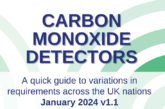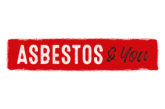
Adrian Keats from Honeywell’s Home Safety business comments on the latest research suggesting low income households are most at risk of carbon monoxide poisoning.
“CO poisoning is a very real danger to homeowners – the gas is odourless and tasteless, and without an adequate alarm you wouldn’t know there was an issue until it was too late. Yet only two thirds of homes have a CO alarm installed and, tragically, at least 30 people die each year from carbon monoxide poisoning with several thousand suffering injuries that require hospital treatment.
“It is worrying, then, to consider the latest research undertaken by Liverpool John Moores University which indicates that low income households are most at risk of carbon monoxide poisoning. Many of these will be private renters or social housing residents so it is crucial for landlords and housing associations to understand the importance of home safety and act accordingly.
“Current legislation requires that landlords or building managers install a CO alarm in any room which contains a solid fuel burning appliance. However, this does not cover gas fuelled products such as boilers and cookers. Figures published by the Government in March revealed that between 2015-2016 just over a quarter of households had a CO alarm. This figure is even worse in rental properties where four in every five homes did not have a CO alarm and are not protected from the risks of CO poisoning.
“It is very reassuring to see MPs supporting proposals to introduce regulations which would make installing carbon monoxide alarms in all rented properties compulsory, bringing England and Wales into line with Scotland, where CO alarms are already a legal requirement.
“However, in the meantime it is important that we as an industry support the installation of these alarms as widely as possible. Wireless, battery powered CO alarms are relatively inexpensive and quick and easy to install. One can be fitted within minutes but can protect a household 24 hours a day, 365 days a year.
“When in the home, whether dealing with homeowners or landlords, it’s important for installers to be extolling the virtues of audible alarms, as opposed to cheaper spot detectors which can be easily missed in the case of a leak. Installers should also ensure they are positioning the alarms correctly to ensure they are activated in the case of a leak.
“Once the alarm is fitted, should it develop a fault or expire then it remains the responsibility of the property manager or landlord to have it repaired or replaced. Depending on the model selected, the lifespan of the alarm can vary, and maintenance for mains wired and battery powered alarms may be different. The Honeywell X-Series CO, smoke and heat alarms require no additional maintenance and no parts or batteries to replace for the entirety of their operational life, fully guaranteed – as a result, maintenance costs to the property owner are minimal.
“Carbon monoxide poisoning costs lives and it’s important that as an industry we rally together to prevent this silent killer.”
For more information on the full range of Honeywell smoke, heat and CO alarms available, visit: www.homesafety.honeywell.com/













